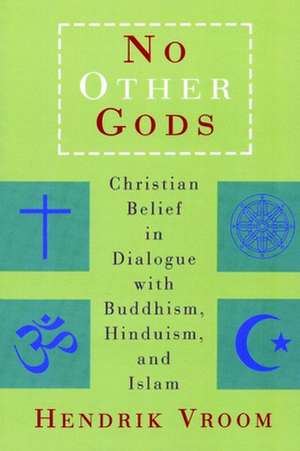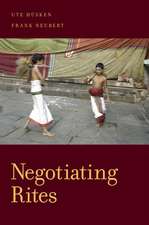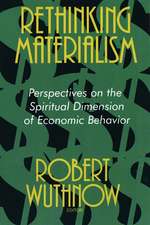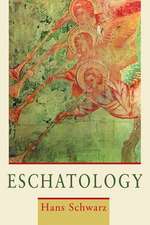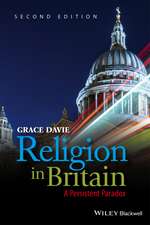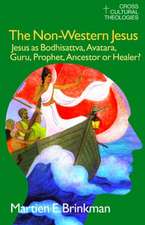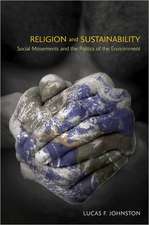No Other Gods: Christian Belief in Dialogue with Buddhism, Hinduism, and Islam
Autor Hendrik Vroom Traducere de Lucy Jansenen Limba Engleză Paperback – 31 mar 1996
Preț: 113.94 lei
Nou
Puncte Express: 171
Preț estimativ în valută:
21.80€ • 22.82$ • 18.04£
21.80€ • 22.82$ • 18.04£
Carte disponibilă
Livrare economică 15-29 martie
Preluare comenzi: 021 569.72.76
Specificații
ISBN-13: 9780802840974
ISBN-10: 0802840973
Pagini: 184
Dimensiuni: 153 x 228 x 12 mm
Greutate: 0.26 kg
Editura: William B. Eerdmans Publishing Company
ISBN-10: 0802840973
Pagini: 184
Dimensiuni: 153 x 228 x 12 mm
Greutate: 0.26 kg
Editura: William B. Eerdmans Publishing Company
Textul de pe ultima copertă
In today's pluralistic culture, Christianity is no longer the dominant belief system. Interest in religion is on the increase again after having declined in the seventies, but this does not mean that people are returning to the same positions they once held. Eastern religions, especially, have attracted wide interest. This significant work by Hendrik Vroom presses the theological and dialogical dimensions of religious pluralism. Vroom here makes a broad study of the views of Christianity, Buddhism, Hinduism, and Islam, especially their views on truth, and explores their mutual relationships. In the process, he seeks to answer a crucial question for our time: For what reasons would a person who has read extensively on Buddhist, Hindu, or Islamic thought continue to be a Christian?
